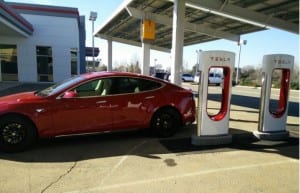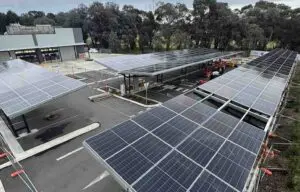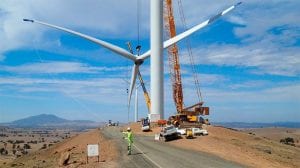
The aviation industry is backing a proposal for a single worldwide standard to offset emissions from international flights, which currently account for about 2% of global greenhouse gases and are forecast to triple by 2050.
The proposed measure could end up costing companies as much as $24bn annually, but has not deterred trade groups representing Boeing and United Continental Holdings from encouraging nations to join the agreement. Airlines would prefer to adhere to one single standard, through which they would compensate for any emissions growth after 2020 by buying credits that support renewable energy or forest preservation, rather than following a patchwork of local programmes.
“We recognize that as an industry, we have an impact on climate change,” said Michael Gill, executive director of the Air Transport Action Group. “The industry is willing to pay its share. We just want to pay our share in the most economic way possible.”
So far the deal has backing from at least 60 nations, although discrepancies between large airlines and smaller carriers from developing nations are yet to be resolved. The agreement is expected to be finalized during talks hosted by the UN’s International Civil Aviation Organization this week in Montreal. If the initial voluntary phase were to proceed – covering 80-90% of emissions – it would be the first global climate pact to target a single industry.
A possible ratification of the Paris agreement will be considered when European Union environment ministers gather in Brussels on 30 September. Maros Sefcovic, EU energy chief, is among those hoping for an accelerated approval of the global climate accord by the bloc, which would in turn allow the agreement to be enacted in full, seeing as countries representing at least 55% of global emissions will have ratified it.
However, certain national interests such as those of Poland, which relies on coal for about 90% of its electricity production, will have to be tackled if the Union-level accord is to prove a success.
The COP21 Paris agreement brokered between some 150 heads of state in Paris last December is addressed in this Analyst Reaction by Bloomberg New Energy Finance. The deal’s most notable outcome is the five-yearly review cycle for country targets and the requirement that all countries act in a transparent way, the note says. However, the level of ambition to address climate change could have been stronger and better-defined, according to BNEF.
Bank of England Governor Mark Carney advocated for environmentally-responsible investment last week during a speech in Berlin. “Green investment represents a major opportunity for both long-term investors and macroeconomic policymakers seeking to jump-start growth,” Carney said. He made reference to International Energy Agency estimates that as much as EUR 45 trillion ($50 trillion) of investment in power networks and energy efficiency may be needed to hold off global warming to any more than 2 degrees Celsius.
In other news, the coming to market of RWE’s green energy business, Innogy, is set to be the biggest initial public offering in Europe since 2011, according to Bloomberg data. The decision by Germany’s largest power producer to list Innogy shares at EUR 32 to EUR 36 apiece could mean that the new renewables, retail and grid company is valued as high as EUR 20bn ($22.5bn) when it floats on public markets on 7 October. There is demand for all Innogy shares, according to an update from sale advisors yesterday.
RWE is spinning off its grid, retail and renewables units into a separate business in order to maintain profitability in the face of Germany’s transition away from coal, nuclear and natural gas towards wind and solar generation. The difference between RWE’s strategy and that of EON, which listed Uniper –- its conventional generation and trading unit – on 12 September to focus on renewables, networks and nuclear itself, is discussed in the note RWE finds another way to spin.
Senegal got the promise of a 24% increase in its power generation capacity last week when Overseas Private Investment Corporation announced it would lend $250m to finance the 158MW Taiba N’Diaye wind farm. The US government’s development finance institution has partnered with Lekela Power to build the project in the energy-starved West African country.
Meanwhile, Iran’s wind industry is taking off following an agreement between Switzerland’s MECI Group and the nation’s government to build a 270MW wind farm. MECI has signed a 5-year power purchase agreement with the country’s energy ministry for the EUR 750m ($839m) wind project.










